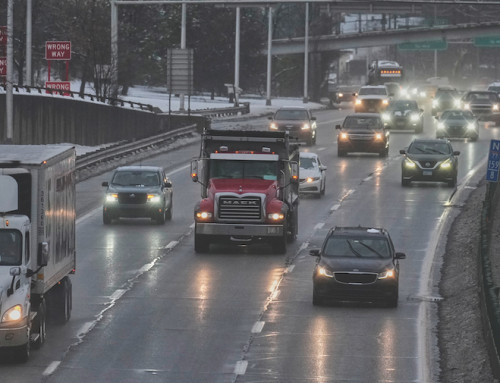A Powell lawmaker has outlined an ambitious plan to fix the state’s method of funding public schools, which was deemed unconstitutional by the Supreme Court of Ohio more than 20 years ago.
Based upon the premise that public funding should follow a student to whatever school his parents choose for the student, Republican Rep. Andrew Brenner’s House Bill 102 would fund public education by instituting a statewide property tax rate of 20 mills and raise the state sales and use tax from 5.75 percent to 7.35 percent.
Brenner manages to keep the funding method revenue and tax neutral, and local school property taxes would be cut by an average of nearly 50 percent statewide, according to the bill’s language.
“The formula will eliminate caps and guarantees,” he told members of the House Finance Committee recently. “To help accomplish this, the state of Ohio will also assume all local school board bond debt.
“Consolidation of all bonds alone should save the state of Ohio taxpayers $144 million per year, due to the better bonding rating of the state of Ohio.”
He said school districts would be in a better position to properly manage their schools and reorganize if need be.
“Transportation will no longer be the responsibility of local school districts, only educating students will be their responsibility, …” he continued. “School transportation will be regionalized and managed by individual Educational Service Centers.
“This regionalization and consolidation of transportation will save millions of dollars and it will make sure that every student has access to public transportation of the school of their choice.”
The bill’s enactment is contingent on passage of both a constitutional amendment authorizing the state to issue obligations to refund outstanding bond debt of school districts and a statewide ballot issue levying a state property tax beginning in tax year 2020 to fund primary and secondary education and simultaneously prohibit the levy of local school district property taxes, including unvoted “inside” millage.
Effective Jan. 1, 2021, the state would pay a specified amount per student that each student may use to attend the public or chartered nonpublic school of the student’s choice, without the requirement of a local contribution, according to HB 102. The funding method would pay an initial amount of $8,740 per student or 60 percent that amount for students attending an e-school.
Just as current funding is layered, depended on the particular student’s needs, so would the new funding method, Brenner assured.
“… There will continue to be more money for gifted students, economically disadvantaged students and students with disabilities,” he said. “All scholarships for charter schools will be eliminated, as the funds will be rolled into the funding formula.”
Another provision of the bill rewards public schools and chartered nonpublic schools based upon performance, such as a graduation bonus and third-grade reading proficiency bonus.
HB 102 would eliminate interdistrict open enrollment, all state scholarship programs and state funding programs for chartered nonpublic schools on the first day of the school year in 2021. Instead, students would be allowed to attend any public or chartered nonpublic school of their choice.
Analysis of the bill provided by the Ohio Legislative Service Commission reported that the bill abolishes the Ohio School Facilities Commission, transferring its powers, duties and staff, with respect to in-progress, state-funded school building projects, to the Ohio Facilities Construction Commission.
Any additional school building projects would be prohibited, effective Jan. 1, 2021, analysis noted.
“As you know school-choice decisions are made by families,” Brenner said to his peers. “Parents and students decide what is in the best interest of students, no school systems.
“If you do not like this concept, then you probably will not agree with my funding formula. If, however, you believe parents have the ultimate responsibility and right to make decisions about the education that is in the best interests of their children, then you should ultimately support my bill.”
HB 102, which is solely sponsored by Brenner, had not been schedule for a second hearing as of publication.








